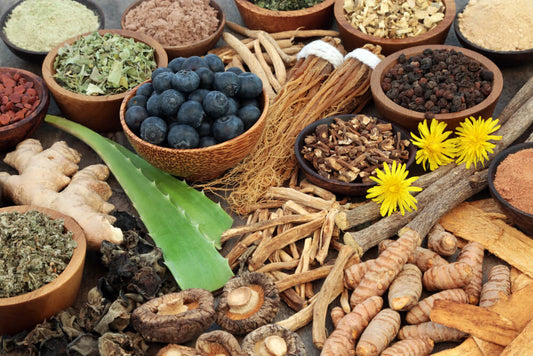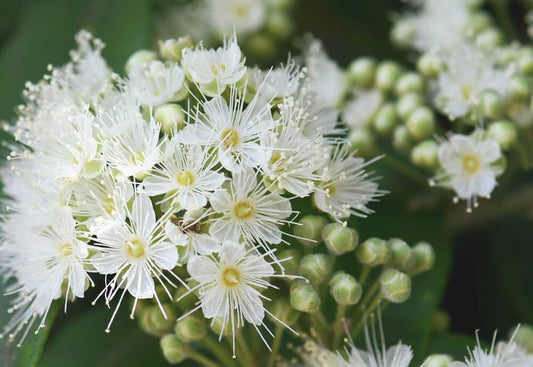
How Lion's Mane Mushroom Could Help With Your Brain Health
Ever wondered if there’s a mushroom that could boost your brain health? Yes, you read that right.
Well, meet the lion's mane mushroom, a unique medicinal mushroom that’s been making waves in the world of neuroscience and nutrition.
Intrigued? Let’s delve deeper!
Key Takeaways
- Lion’s Mane mushroom (Hericium erinaceus) contains key compounds such as hericenones and erinacines that may improve cognitive health, stimulate nerve growth, and possess neuroprotective properties, in addition to supporting immune function and exhibiting anti-inflammatory and antioxidant effects.
- While Lion’s Mane shows promise in enhancing memory, promoting digestive health, and reducing symptoms of anxiety and depression, its effects need further study, and it should be used with caution due to potential allergies, sensitivities, and interactions with certain medications.
- Consumers should carefully select Lion’s Mane products, considering factors such as source quality and third-party testing, and follow dosage recommendations while also consulting healthcare professionals, especially when taking other medications.
Unveiling the Lion's Mane Mushroom

The Lion’s Mane mushroom, true to its name, bears resemblance to a lion’s majestic mane. This large, white, shaggy mushroom is not just an exquisite spectacle but also potentially is a treasure trove of health benefits.
Its reproduction is facilitated by an interesting spore dispersal process. The spores, released from the fruiting body of the fresh lion’s mane mushrooms, are carried to new locations by wind or animals, where they germinate and grow. As the lion’s mane appears in its new location, it continues to offer its valuable health benefits.
This recurring cycle of growth and regeneration spawns compounds with medicinal properties. So, when you consume Lion’s Mane, you are not just enjoying a unique culinary delicacy; you’re also tapping into a natural source of health-enhancing compounds!
Taxonomy and Habitat
Scientifically known as Hericium erinaceus, Lion’s Mane belongs to the following taxonomic classification:
- Kingdom: Fungi
- Phylum: Basidiomycota
- Class: Agaricomycetes
- Order: Russulales
- Family: Hericiaceae
- Genus: Hericium
- Species: Hericium erinaceus
Lion’s mane mushroom is often used in traditional Chinese medicine and typically thrives on deceased hardwood trees, including oak, walnut, beech, maple, and sycamore, adding a touch of white elegance to the otherwise brown and green forest landscape.
For cultivation, a dark location shielded from direct sunlight along with room temperature conditions are ideal for Lion’s Mane. The mushroom thrives on dead or living hardwood trees, particularly old oak or beech, making it an interesting addition to your home garden.
Culinary Uses
In terms of culinary appeal, Lion’s Mane mushrooms are a gourmet’s delight. They have a flavour profile that’s reminiscent of seafood, such as lobster or crab, which sets them apart from the usual earthy and nutty flavours found in other edible mushrooms. To enhance their taste and avoid bitterness, it’s recommended to cook the mushrooms until the outer layer is crispy.
From Lion’s Mane Mushroom Crab Cake to Creamy Lion’s Mane Mushroom Pasta, there’s a wide array of dishes that feature these mushrooms. Or another way to enjoy these benefits is by consuming lion’s mane mushroom powder or adding lion’s mane mushrooms to your diet.
Adding Lion’s Mane mushrooms to your diet not only tantalises your taste buds but also paves the way towards a possibly healthier lifestyle. In Asian cultures, these mushrooms have been utilised for their medicinal properties, offering various health benefits alongside their culinary appeal.
Some of the health benefits associated with Lion’s Mane mushrooms include:
- Boosting brain function and improving cognitive health
- Supporting the immune system
- Reducing inflammation
- Promoting digestive health
- Protecting against certain types of cancer
Keep in mind that the above benefits are only potential benefits and more research needs to be completed to comprehend the true benefits of lion’s mane mushrooms. Below, we will discuss some of the reasons why lion’s mane is believed to be beneficial to our health.
The Science Behind Lion's Mane Benefits

The composition of Lion’s Mane holds the key to its health-promoting properties. This mushroom is known to contain various health-promoting substances such as antioxidants and beta-glucan, making it a valuable medicinal mushroom. Beta-glucans are known for their role in stimulating macrophage activity and supporting immune function. They are also known for their potential in reducing high cholesterol levels and demonstrating neuroprotective effects, thus potentially enhancing brain health.
These compounds have piqued the interest of the scientific community, sparking a plethora of studies to explore their potential health benefits. Let’s delve deeper into these health-promoting compounds and understand their benefits.
Unlocking the Brain-Boosting Potential
The ability of Lion’s Mane to enhance brain health is indeed captivating. Research studies have shown that this mushroom can enhance memory, promote brain cell growth, and potentially protect against progressive memory loss. Moreover, the mushroom might provide neuroprotective advantages, mitigating the effects of brain trauma and complications related to traumatic brain injury, potentially decreasing the likelihood of conditions such as Parkinson’s disease.
Beyond enhancing memory and providing neuroprotection, Lion’s Mane may also contribute to mood regulation by promoting cognition and mood stability, as well as reducing anxiety, potentially enhancing overall emotional well-being. However, while some preliminary studies hint at modest cognitive benefits of Lion’s Mane, it is worth noting that direct evidence is still lacking. This highlights the necessity for additional research.
Other Health Perks of Lion's Mane
The benefits of Lion’s Mane are not confined to brain health. This mushroom has demonstrated its ability to potentially promote digestive health through the prevention of ulcers, anti-inflammatory properties, and support for overall gut health. Lion’s Mane mushroom also demonstrates antioxidant and anti-inflammatory properties through its significant antioxidant activity and the presence of oligosaccharides, which exert anti-inflammatory effects.
Moreover, Lion’s Mane has the potential to improve the immune system through the reduction of inflammation and prevention of oxidation, thereby strengthening the body’s defense against illness.
Precautions and Side Effects
Despite the multitude of health benefits Lion’s Mane offers, awareness of potential allergies, sensitivities, and interactions with medications is crucial. The most prevalent adverse effects of ingesting Lion’s Mane mushroom are gastrointestinal discomfort, nausea, and a skin rash. Furthermore, there is some apprehension that lion’s mane may exacerbate symptoms in individuals with allergies and asthma.
Thus, it is generally recommended to seek advice from a healthcare professional before starting Lion’s Mane and to follow usage instructions meticulously. It is advised to refrain from using lion’s mane during pregnancy and lactation due to limited research on its safety in these circumstances.
Choosing and Using Lion's Mane Products
Selecting the appropriate Lion’s Mane product is key to deriving its full benefits. Consumers should consider the following factors:
- The source of the Lion’s Mane product, whether it is derived from the above ground mushroom or the underground mycelium.
- Opting for supplements from manufacturers that provide professional-grade products.
- Choosing supplements that utilize high-quality ingredients.
- Ensuring that the supplements undergo third-party testing.
Considering these factors will help ensure that you are getting a high-quality Lion’s Mane product.
Lion’s Mane supplements are available in a variety of forms, such as capsules and powders, and can be easily obtained from us here at Superfoods Australia, the provider of the highest quality lion’s mane in Australia.
Lion’s Mane mushroom is a unique medicinal mushroom with potential health benefits, particularly for brain health. So, why not give it a go today?













